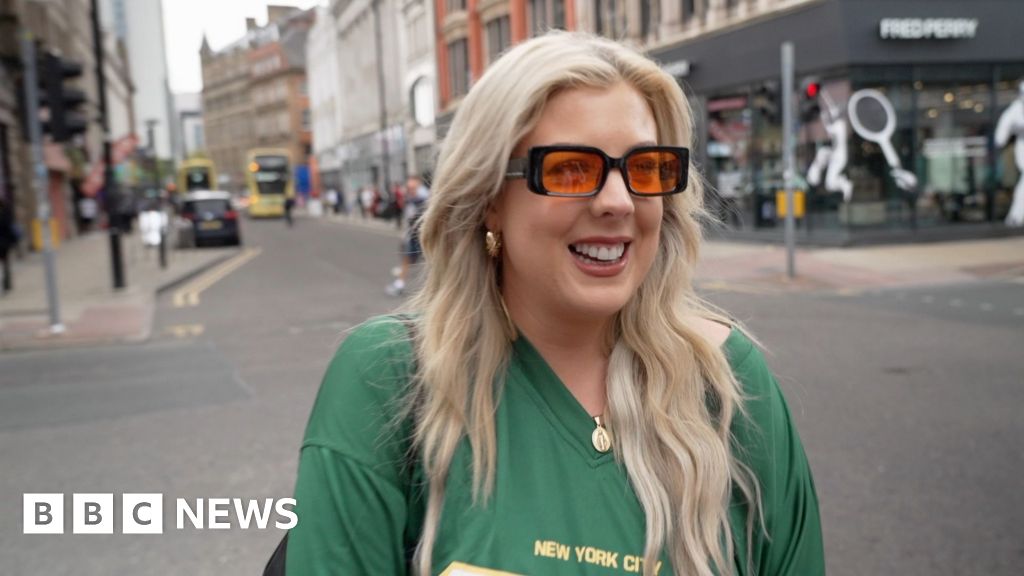News, Manchester

Filming a night out is part of the fun for younger generations, but some people say the sea of phones is “ruining the atmosphere” on the dance floor or at gigs.
Amber’s Club in Manchester has been operating a no phones policy since opening in December 2024, saying constant use of phones “sucks the energy out of the room”.
A similar approach has now been adopted by the city’s Warehouse Project, which recently announced a no phones policy at some of its events from September.
Becks Mavo, 31, who enjoys going to concerts, said: “Phones ruin the atmosphere. You can’t see the band, nobody’s living in the moment… At a concert you need to be going feral.”
But Kezia Jones, 25, told the that she films at gigs and events “to have a memory, to show friends, put it on social media, show my family”.
With a capacity of 10,000 at Depot Mayfield and events every weekend between September and December, the Warehouse Project is one of the biggest club nights in the country.
In videos shared online at its events, the first thing that catches the eye is all the hands holding phones above the crowd.
From September, shows in the Concourse section of the club will be phone-free, with clubbers required to place a sticker, provided by the nightclub, over their phone’s camera.

At the full Warehouse Project shows, organisers said they were encouraging people to keep their phones in their pockets, especially on the dancefloor.
Club culture was “best enjoyed in the moment with your friends, and with your phone in your pocket”, it said.
For Amber’s, a similar policy has been in place since the venue opened.
“It kills the vibe on the dance floor and sucks the energy out of the room in a way,” said Amber’s co-founder James Hutchins.
“We wanted people to reconnect with each other and with the music.”

Mr Hutchins said only a few people had raised an issue with the policy.
Staff politely ask clubgoers to stop if they are filming and will ask those who do not comply to leave.
Amber’s and the Warehouse Project are by no means the first to implement policies of this kind.
In Berlin, infamous for all-night raves and a culture of partying, no phones on the dance floor is standard practice.
FOLD and Fabric nightclubs in London have been stickering phone cameras for several years.
Elsewhere in Manchester, nights at White Hotel encourage a phone-free atmosphere and event organisers at SOUP Kitchen in the Northern Quarter often ask clubbers to put stickers over their phone cameras too.
 The Warehouse Project / @shotlikethis
The Warehouse Project / @shotlikethisBut why have clubs become filled with people on their phones?
Ms Jones said: “Generally I would like to be able to take pictures of the acts themselves if I was going there.”
But Anna Davis, 22, said she thought a ban was a good thing and “takes it back to what it’s meant to be about”.
Harvey Stonebridge, 26, agreed, calling a phone ban a “fun idea”. He said filming could be an “iffy situation, because there’s a lot of private things that might happen in clubs”.

However, the view that phones are “killing the vibe” is not necessarily shared by those in the DJ booth.
DJ and promoter PJ Smith said people filming her when she was on the decks had helped her with her social media presence.
“The industry is struggling,” she said. “I can’t always afford to take a videographer.”
When putting on her own events as a promoter, she said she had never found phones to be an issue, but understood why it could be for bigger venues.
She said: “We’re losing grassroots venues at such a rapid rate, we need to be so focused on getting people to come out. It’s not our place to tell them what they can and can’t do.”
The lack of filming did not put anyone off going to Amber’s, as Mr Hutchins said they sold out every weekend for three months after opening.
The DJ and co-founder said that without phones “you can see people are really going for it and enjoying the music rather than just filming it for Snapchat”.
“Seeing other clubs like Warehouse Project and Mint Warehouse in Leeds also introducing this policy since we have is great,” he said, adding he hoped this could be the “future of clubbing”.



